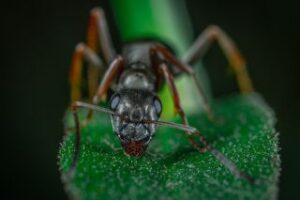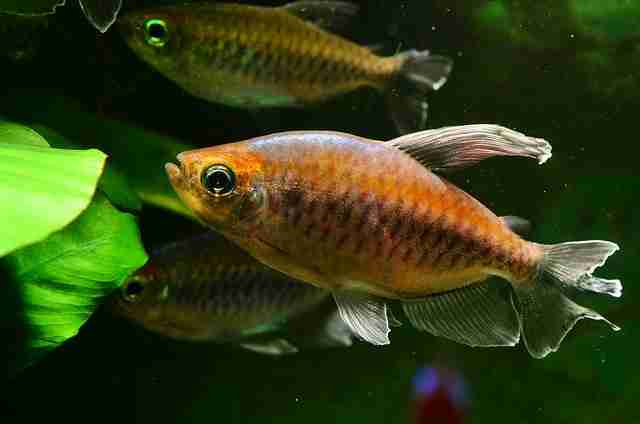Do Ants Have Feelings? (Answered)
Ants are social insects that belong to the phylum arthropoda, and class insecta; they are of the family Formicidae and belong to the order of Hymenoptera. They mainly live in large colonies and are more commonly found in hot climates. Despite their miniature size (2 to 25mm), they can lift up to 20 times their body weight. Their mode of communication is usually via sound, pheromones and touch.
With over 12,000 species of ants in existence, you may be wondering – do ants have feelings?
Ants do not exhibit complex emotions such as pain like humans and that is because their brain is less developed and contain far less number of neurons compared to the human brain. In this article we will be discussing how ants process sensations and whether they have feelings, emotions, fear and friends. Keep reading to find out more.

Do Ants Have Feelings Or Emotions?
Ants do not have the ability to feel complex emotion such as anger, remorse, love or worry. Their brain contains only 250,000 neurons which is way less than that of the human brain which contains billions of neurons.
Also, ants lack neocortex which is involved in the center for higher brain functions. The neocortex comprises about half the volume of the human brain. It processes emotional, sensory and language information. Neocortex is found in higher vertebrates like mammals.
Although ants may not be able to feel or process complex emotions like humans, they are attracted to things that are pleasant to them, such as sweet or sugary foods. They also know to stay away from things that aren’t sweet or pleasant such as spices (like cayenne pepper), citrus or vinegar.
How The Ant Brain Processes Sensations
Ants have a series of ganglia located down their bodies which are connected to the brain. Ganglia are basically clusters of nerve cell bodies found throughout the body. They are responsible for carrying nerve signals from and to the central nervous system. So, they are part of the central nervous system.
Information travels from the ant brain to various part of the body and also from the body parts to the brain via neurons. Neurons or nerve cells are cells that specialize in transmitting information to other cells of the body.
Neurotransmitters are like the chemical messengers of the body. They carry signals from one nerve cell to the next. This transfer of messages help the ant to feel sensations, move its limbs, and experience hunger. It also aids digestion.
Do Ants Feel Pain?
Ants have a decentralized nervous system. They can sense when they are in danger but cannot detect physical damage. If the leg of an ant is broken, it will barely notice or feel it. When an ant senses danger, it wiggles around to get away from the source of danger.
There is something called nociception. Have you ever had an injury but not felt the pain until you actually noticed it? In simple terms, nociception is the detection of painful stimuli. The word nociception is coined from the latin word ‘nocere’ which means ‘to harm or hurt’. Nociception is the process by which noxious (harmful or unpleasant) stimulation is communicated through the central and peripheral nervous system.
Nociceptors are activated potentially by noxious stimuli. Nociception allows the CNS (central nervous system) to detect and avoid unpleasant stimuli. When you get a nociceptive pain, signals are sent to the sensory nervous system to inform the brain that you have been hurt. It is possible to sense that you’ve been hurt but not feel pain. This is nociception and that is probably what ants experience.
The biological basis of pain sensation
Pain is a term used to describe an unpleasant sensation cause by tissue damage in the body. The main purpose of pain is to alert the body of potential hurt or damage. The sensation of pain is a part of the nociceptive response.
Pain receptors are stimulated by three types of stimuli which include mechanical, chemical and thermal stimuli.
The nociceptive pathway involves three types of neurons – primary sensory neurons, secondary sensory neurons and tertiary sensory neurons. Primary sensory neurons transduce information about chemical, mechanical and thermal states of the body and transmit them to the central nervous system.
Secondary sensory neurons are located in spinal cord or brain stem. It acts as a relay. It transmits painful sensation to the thalamus.
Tertiary sensory neurons transmit painful sensation from the thalamus to the cerebral cortex.
How do ants feel pain?
Based on what entomologists have discovered, insects do not feel pain the way humans or vertebrates do. They do not have pain receptors. So, even though they can sense that they are damaged, they don’t usually feel pain like humans. This is evident in their lack of a more developed and complex nervous system.
When vertebrates are hurt or in pain, this interferes with their normal activities. They tend to take time out to recover and heal. This is not the case for ants. An ant with a broken leg will still go around in search of food without limping because the main instinct of an ant is based on feeding and mating and no on survival like us humans.
Do ants feel pain when you kill them?
Not really. Remember, ants lack pain receptors, so they don’t feel pain like vertebrates. They can sense that they are in danger and when they do, they release pheromones to send a signal to other ants that they are in danger. Dead ants release a chemical called pheromones when they are killed. This attracts other ants to the spot. .
There are other ways to get rid of snails if you don’t want to kill them. You can do so by using table salt, chili pepper, cinnamon stick, citrus, dried peppermint leaves or coffee grinds.
Do Ants Get Sad When Other Ants Die?
Sadness is another complex emotion. Ants cannot feel sad because their brains and nervous systems are “too simple”.
Although they “respect” their dead mates, they don’t notice their bodies until after three days when the dead ant releases oleic acid. The smell of oleic acid alerts the other ants that one of them is dead and should be disposed of. The dead ant is carried away into the midden (more like a garbage dump) and business go on as usual.
Ants don’t grieve or mourn over the dead like humans do.
Do Ants Feel Fear?
Fear is a complex emotion and ants don’t have the ability to feel complex emotions. Their brain is not developed enough to translate complex emotions. These emotions include jealousy, shame, awe, sadness, happiness, anger, fear and so on. Ants don’t have the ability to feel these emotions.
They feel threatened but and not afraid, and respond to the source of threat by being more cautious. Some may defend themselves by biting the organism they feel threatened by. But generally, when an ant feels threatened, its natural response is to get away from the threat.
Do Ants Have Friends?
Ants are not capable of love as it’s a complex emotion. But they can communicate and recognize each other, especially their colonies. An ant recognizes another ant through the smell of the chemical pheromones secreted by the other ant. It does this using the sensors in its antennae. It’s worth mentioning that an ant’s antennae is highly sensitive. Ants can also recognize their foes and when they do, they secrete pheromone to alert other ants that they are in danger.
Are Ants Smart?
Individually, ants have tiny brains and may not be very smart but when they work collectively as a colony, they exhibit remarkable intelligence.
The brain of an ant has 250,000 neurons. While that is small compared to the human brain, ants are smart enough to communicate with each other, avoid and defend themselves against dangers and predators, work together in search of food and recognize one of their own.
To reiterate, ants display collective intelligence. They work together to achieve things that cannot be achieved individually. So when together, ants are among the most intelligent insects.





